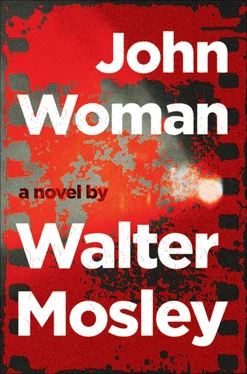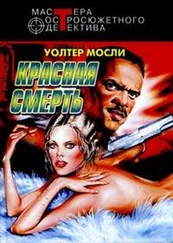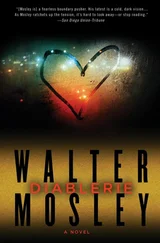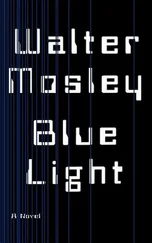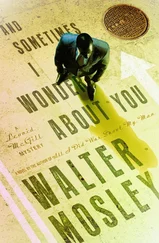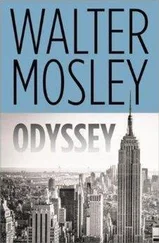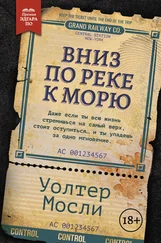With Winch and Wittgenstein on the tip of his tongue he said, “You are correct. But the devices we shall use are not mechanical or theoretical. We will be the tools. Our minds and hearts, keen and necessarily faulty insights will, in this seminar, deconstruct the presumptions of historical thinking and, so doing, will partially free us from the knee-jerk, rote expectations that litter the field.”
“How?” Carlinda Elmsford asked.
“That’s the question I’ll be asking at every class and office hour,” John said. “It will be the inquiry you make of each other and of the mirror in the morning when you are brushing your teeth.”
John wanted to go on, to tell his students that the certainty of mortality and true creative thinking were one and the same. He would have continued but noticed a movement to his right. Glancing toward the door he saw Theron James, dean of the social sciences department.
“But,” he said, addressing the class, “we will have more than enough time for that. Right now I’d like you to check out two books that I have reserved for you in the library — The Idea of a Social Science and Its Relation to Philosophy, by Peter Winch, and Culture and Value, culled from Wittgenstein and translated by Winch.”
John waited while the students wrote down the information or entered it on their electronic devices.
“That’s all for today,” he said. “I’ll see you Thursday when we start in earnest.”
The students filed out through the red-rimmed doorway passing between the smiling dean and the history professor.
Pete Tackie, Star Limner, John said to himself. This was his technique for remembering names quickly. Justin Brown, Beth Weiner.
Carlinda Elmsford stopped at the door again, this time wondering, John surmised, if she should leave. She had more questions for him; he could see that in her strained expression. She almost lurched toward him but then moved through the doorway, maladroitly brushing against the jamb with her shoulder.
She was, it seemed, the last student to leave.
John wondered why her question had stirred him. He allowed a few seconds to consider his odd response, then looked up at Dean James.
“Theron.”
Instead of replying the dean made a gesture with his head. John looked behind and saw the young student, waiting for him to notice her.
“Yes? Tamala isn’t it?”
“I didn’t mean that I thought that there was no Holocaust, Professor Woman,” Tamala said without preamble. “I was only trying to show how I understood your lecture.”
She wore a lemon yellow sundress that contrasted perfectly with her light brown skin. Her eyes were a darker shade of brown and her features both delicate and classic — almost Persian, John thought, but probably not from Iran.
“Absolutely, Ms. Marman. You were trying to get at the heart of the argument. I appreciate that — very much.”
“It just seemed like people were mad at me,” she went on, “that they thought I was being anti-Semitic...”
“When,” the professor said, helping her sentence along, “you were actually underscoring the point I was trying to make.”
She smiled and breathed in deeply.
“You’re from Turkey?” John asked.
“How did you know?” She was surprised. “Yes, I mean, my father’s from there. But I was born and raised in Maryland.”
“You’re going to be a valuable asset in our class, Ms. Marman. You will help me show the class, over the next semester, how history is our intellectual culture. It passes through us, creating and abandoning us at the same time.”
John noticed the swelling of her chest and a slight shift of her hips as he spoke.
“But I have to go,” he added. “If you want to talk more about it come to my office any Tuesday or Thursday, four to six. That is, except today. I like my lectures to simmer after the first class.”
“Thank you, Professor,” Tamala said, looking down shyly; then she moved quickly past the dean and out the door.
Theron approached the lectern smiling.
“That was magnificent,” he said.
They clasped hands and held each other’s gaze a moment.
Dean James was the shorter by an inch or so but his shoulders were broad; his demeanor was more that of a car salesman than a scholar. His gray suit was of a business cut. There was a scar under the left eye making John suspect that Theron had a rough life before entering the halls of academe.
But, John advised himself, it might just be a trophy from a tough game of rugby at Oxford.
“Thank you, Theron.”
“You know they argued against us hiring you,” the dean said. “I was warned that you weren’t old enough, didn’t have the experience. Professors across the line tried to convince me that your brand of study would undermine the history department. But I knew you would engage the students in a way that no other professor could.”
“I do love it,” Woman said. “Students are ready for deeper thinking than they know. My job is to tease it out of them.”
“Teaching them,” Theron added, “that they will be the ones making history rather than just becoming aggrandized, half-blind scribes.”
As always John was impressed by the dean’s keen perceptions. He thought of an essay he’d never write — “The Subtlety of Car Salesmen.”
“You just passing by handing out compliments, Theron?”
That familiar huckster smile crossed the shepherd scholar’s lips.
“You haven’t published since coming here,” he said. “It’s only been two years but two can turn into ten before you know it.”
“Recently I’ve come up with an idea about academia and car salesmen,” John said. “Maybe that will be my first.”
“The history department review committee will be meeting soon,” Dean James posited, his smile gone.
“And I’m at the head of the list,” John said.
“They’ll want to hear about the paper you’ve already proposed.”
After the Dean left John sat in Justin Brown’s half-desk chair. Leaning back, gazing at the green lectern, he assessed the lecture, wondering what it was the students had learned.
No one can know what is in another person’s heart, Herman Jones said. This was not a memory per se, but was as if John’s father was somehow embedded in the emptiness of the classroom, there in spirit as a hopeless optimist might opine.
John put this thought aside because of Theron James’s warnings: you haven’t published and the history department review committee will be meeting.
Then there was Carlinda Elmsford. She was... unexpected. A student who easily engaged with ideas, so intent that the class felt threatening to her...
... to her soul, phantom Herman Jones said, completing the thought.
John sighed in his chair. He reacted similarly to the beginning of every semester. The first class was where he was the most lucid, certain and self-confident; but directly afterward he felt fragmented, unable to keep his mind on any one subject for long. He usually conjured his father at these times, though not so much as to actually hear a voice... And he’d reexperience delivering the third blow to Chapman Lorraine’s skull. That solitary act defied John’s deconstructionist prowess. Once again he was Cornelius Jones. Once again he was vulnerable, culpable... identifiable.
The exultation of life in the university was stalked by guilt, a dogged predator snapping at the heels of a noble elk — and John stood between the two...
You were a boy, Herman said without sound or substance. He was a man and should have shown restraint.
Twenty minutes later he stood up from the half-desk, walked toward the red outline and blundered out of the empty room into the sheltered hall, where students, and a professor or two, walked with purpose in the long passageway that circumnavigated the open inner wall.
Читать дальше
